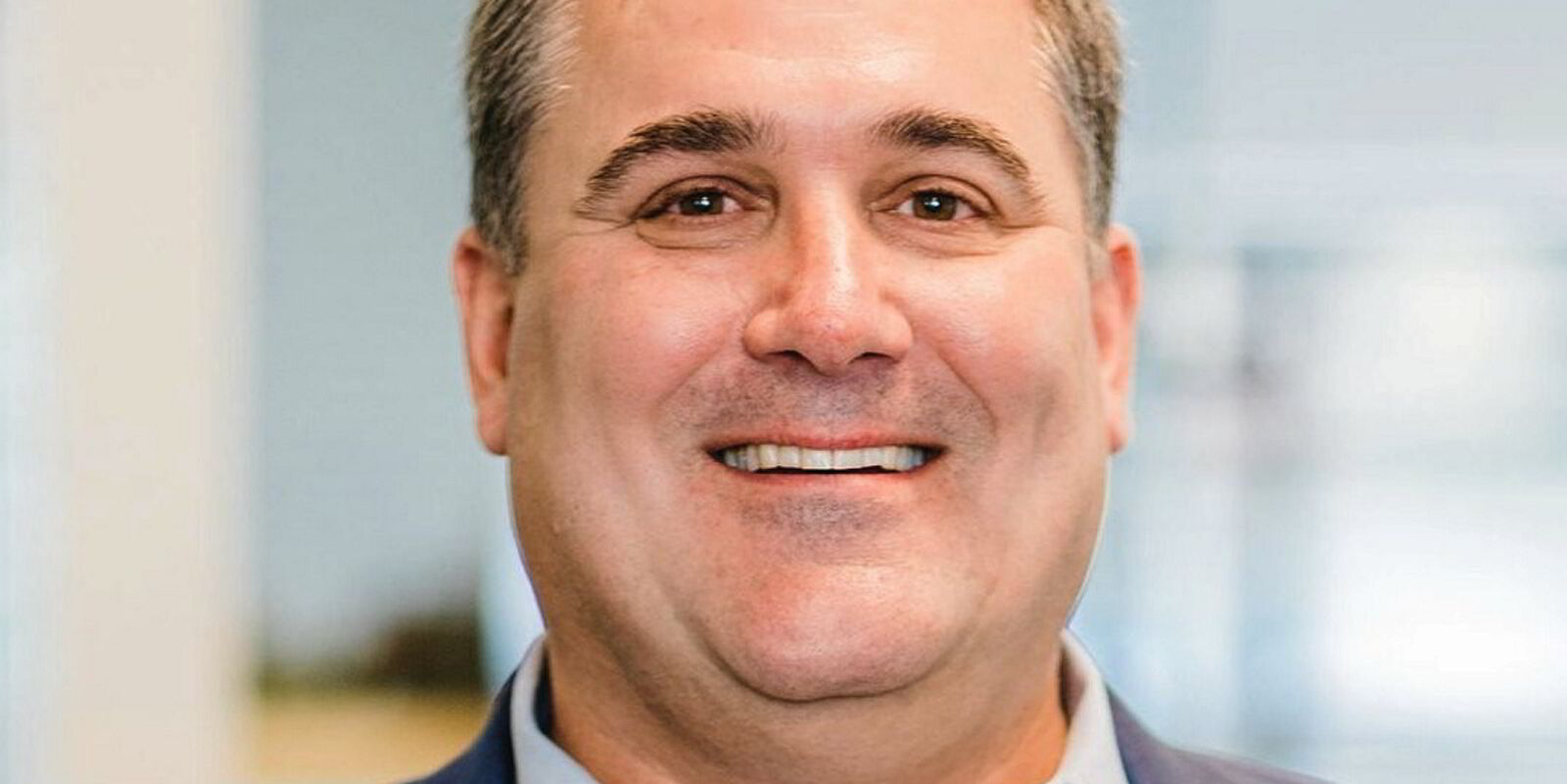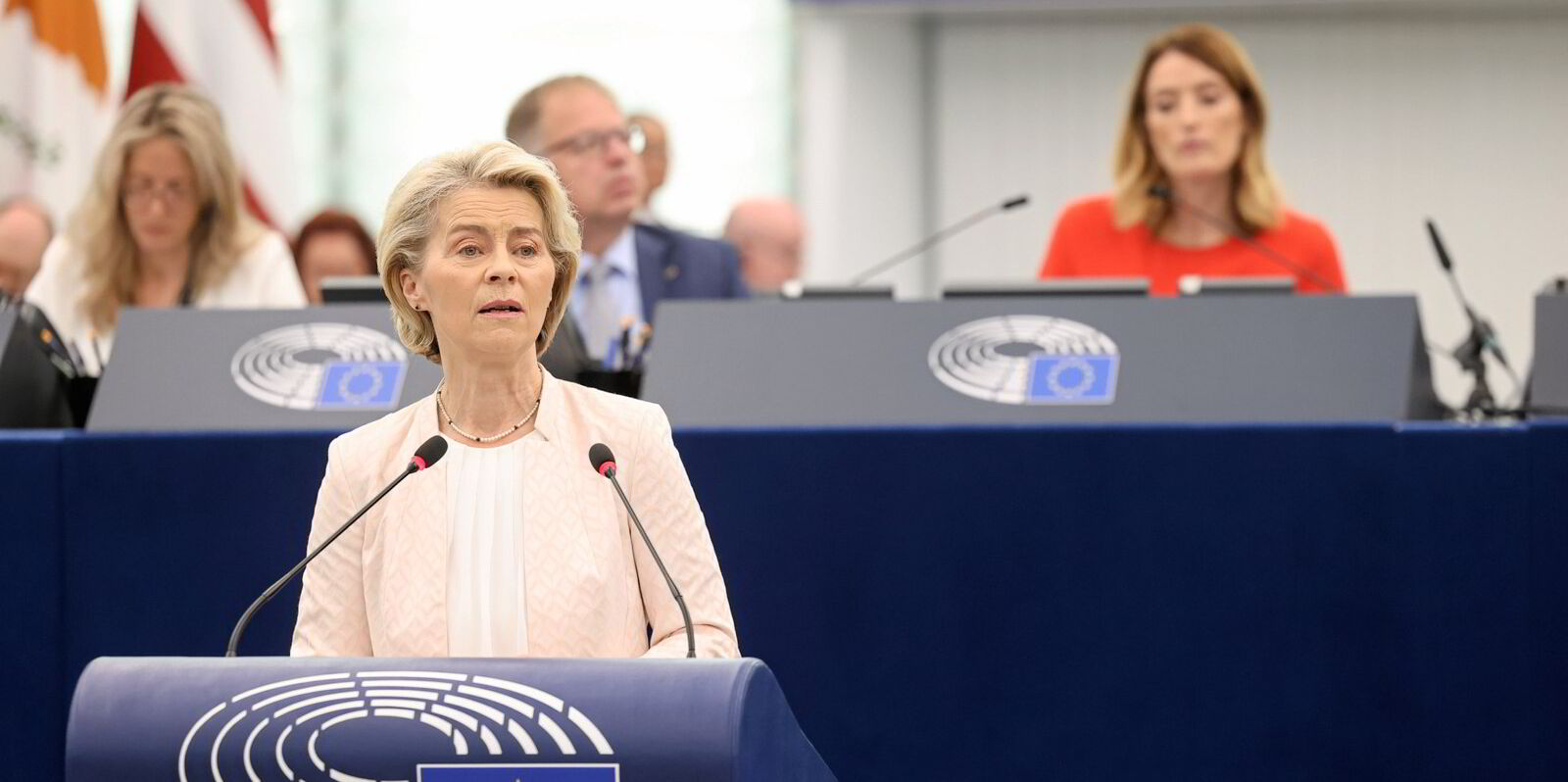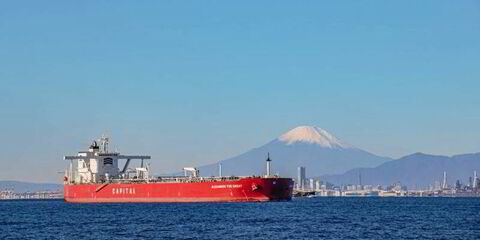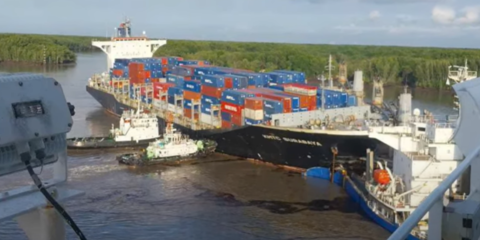Liner companies have updated a proposal made earlier this year for a market-based measure for shipping emissions.
It has the backing of major container lines, such as CMA CGM, Hapag Lloyd and AP Moller-Maersk, and car carrier giants including Wallenius Wilhelmsen.
The World Shipping Council revealed its suggested measure in February this year ahead of discussions at the International Maritime Organization.
Talks are set to resume in September and the lobby group says it has revamped its Green Balance Mechanism, as the proposal is called, following consultation with member states and other interests.
The Green Balance Mechanism is one of a number of schemes that will be put into the discussions when an intercessional meeting takes place in London.
Focus will be on midterm measures, including a fuel standard and a range of proposals for various market-based measures.
The WSC proposal is, it said, focused on taking additional revenues from fossil fuels, such as heavy fuel oils, and using them to fill the price gap with more expensive green fuels such as methanol and ammonia.
This it says will make green fuels competitive with fossil fuels.
‘Allocation zones’
The revised proposal brings in what it calls “allocation zones” and a fee zone in its funding model to allow fuels with differing greenhouse gas intensity to be accounted for.
The revision also creates the possibility of working in parallel with a potential IMO net-zero fund, which is being proposed to funnel collected revenues towards research and development projects, to support developing countries or other needs as yet to be agreed by the IMO member states.
“For shipping’s energy transition to take place, green maritime fuels must be available at scale, requiring billion-dollar investments by energy producers,” WSC president and chief executive Joe Kramek said.
“For these investments to occur, the IMO must adopt regulations that not only increase fossil fuel prices but also make green fuels a viable alternative.
“IMO member states have a unique opportunity to decarbonise the world’s ocean supply chains. We do not have time for half measures.
“The IMO’s regulations must make it possible for green fuels to compete with fossil fuels, to drive the transition effectively.
“Anything less risks raising transportation costs without achieving the climate progress the world needs,” Kramek added.
In the first week of September, an IMO greenhouse gas expert workshop will develop the basket of midterm measures, then the IMO’s 17th intercessional meeting on greenhouse gases will begin on 23 September, with a week-long Marine Environment Protection Committee meeting starting on 30 September.(Copyright)




